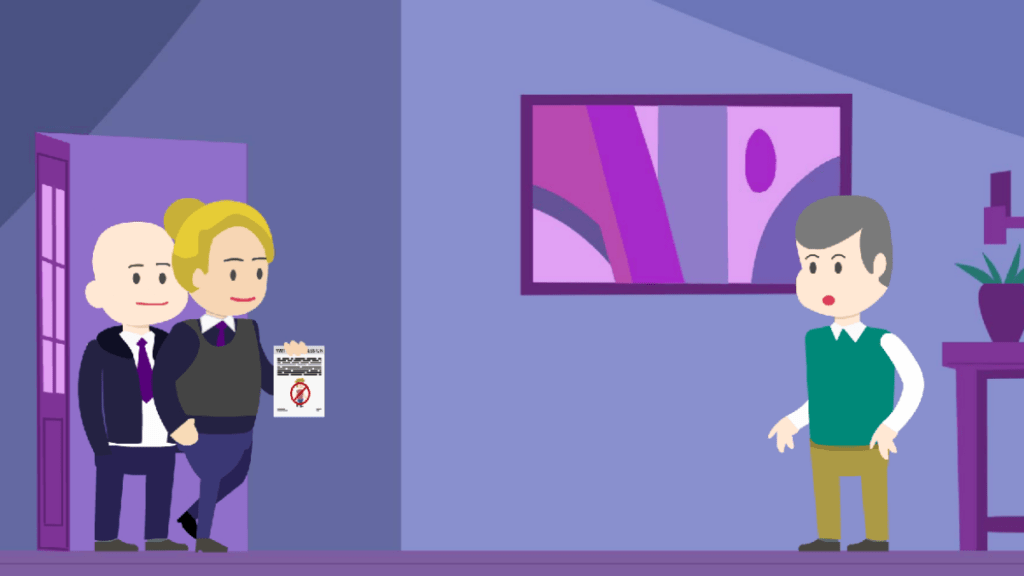When people hear the word “bailiffs,” many imagine stern figures arriving to collect debts or enforce court orders. However, there’s much more to bailiffs and certified bailiffs than what meets the eye. These enforcement professionals play a vital role in upholding legal obligations, whether it’s recovering unpaid debts, enforcing possession orders, or assisting landlords and businesses. But what exactly do bailiffs do, and how can they impact your daily life?
In this comprehensive guide, we’ll explore the world of bailiffs and certified bailiffs, delve into their responsibilities, and clarify the regulations that govern their actions.
Who Are Bailiffs?
Bailiffs, also known as enforcement agents, are professionals authorised to enforce court orders, such as debt collection or eviction. Whether you’re dealing with bailiffs in London or certified bailiffs in London, these licensed individuals undergo rigorous training and adhere to strict guidelines outlined by UK law.
Their work often involves situations such as:
- Recovering unpaid debts.
- Enforcing possession orders.
- Repossessing goods or assets.
If you’ve ever seen TV shows like “Call the Bailiffs: Time to Pay Up“ or “Can’t Pay? We’ll Take It Away“, you’ve likely witnessed bailiffs in action. These shows highlight the challenges and intricacies of enforcement work, offering a behind-the-scenes look at this profession. Shergroup’s own Claire Sandbrook, featured on these programmes, brings years of experience and insights into how High Court Enforcement Officers (HCEOs) operate.
What Can Bailiffs Do?
Bailiffs are empowered to:
- Enforce County Court Judgments (CCJs) for unpaid debts.
- Execute High Court writs for significant financial claims.
- Recover unpaid taxes or business rates.
- Serve eviction notices to tenants under a possession order.
- Repossess goods to settle debts.
However, their actions are governed by strict regulations to protect individuals from unlawful treatment. For instance, bailiffs cannot forcibly enter your home without prior legal authorisation or proper notice.
Understanding the Types of Bailiffs
There are different types of bailiffs, each with specialised roles:
- County Court Bailiffs | Handle smaller debts and enforce CCJs.
- High Court Enforcement Officers (HCEOs) | Focus on larger financial claims and operate under High Court writs.
- Certified Bailiffs | Typically recover unpaid council tax, parking fines, and business rates.
- Private Bailiffs | Work for private clients, such as landlords.
Certified Bailiffs | Roles and Responsibilities
Certified bailiffs hold a higher level of authorisation, enabling them to manage sensitive cases involving significant debts or business disputes. To become certified, they must:
- Pass exams to demonstrate their understanding of legal frameworks.
- Maintain a clean professional record.
- Follow the Ministry of Justice guidelines.
Their responsibilities often intersect with those of HCEOs, but the key difference lies in the court that authorises their actions.
Bailiff Regulations and Your Rights
UK law ensures a balance between enforcing obligations and protecting individuals. Key regulations include:
- Proper Identification | Bailiffs must show valid ID and explain their purpose.
- Notice Requirements | A written notice must be provided at least 7 days before any action.
- Restricted Hours | Bailiffs can only visit during specific hours, usually 6 am to 9 pm.
- Prohibited Goods | Items like essential household items or tools of trade are typically exempt from repossession.
Related Blogs for a Deeper Dive
- Certified Bailiffs Explained | Roles, Responsibilities, and Your Rights
- 10 Things You Need to Know About Bailiffs in the UK
- How to Deal with Bailiffs | Tips and Advice for Homeowners
- High Court Enforcement Officers vs. Bailiffs: Key Differences Explained
FAQs
Can bailiffs force entry into my home?
In most cases, bailiffs cannot forcibly enter your home unless they have specific legal authority, such as a High Court writ.
What happens if I ignore a bailiff notice?
Ignoring a notice may escalate the situation, potentially leading to court action or additional fees.
How can I stop bailiffs from taking my belongings?
You can prevent repossession by paying the debt in full or negotiating a repayment plan before enforcement begins.
Call to Action
Navigating the complexities of bailiff actions can be challenging, but you don’t have to face it alone. With decades of experience in High Court enforcement and debt recovery, Shergroup offers tailored solutions to protect your rights and assets.
Contact us today to learn more about our comprehensive services and how we can assist you. Call us now or visit Shergroup.com.
You can reach us |
By Phone | 020 3588 4240
Website | www.shergroup.com and you can chat to us from here
Email | hub@shergroup.com
Facebook | Check out Shergroup on this channel and message us
Twitter | Check out ShergroupChat on this channel and message us
LINKEDIN | Check out Shergroup’s LINKEDIN – and please FOLLOW us!
Instagram | Check out ShergroupChatter and
YouTube | Check out Shergroup YouTube Channel – Subscribe to Our Channel!

